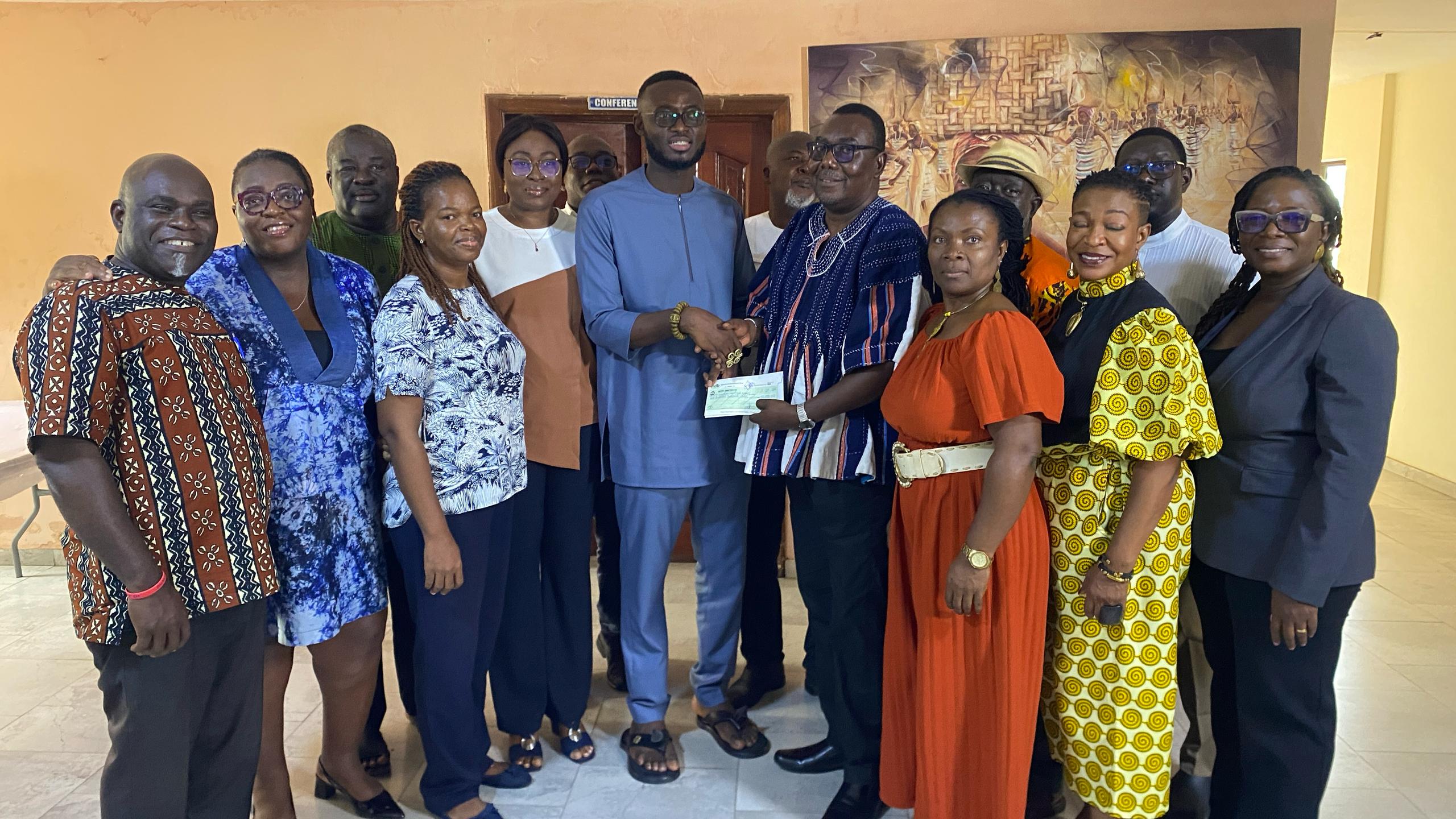In a remarkable demonstration of industry leadership, the Ghana Academy of Film and Television Arts (GAFTA) has donated One Hundred Thousand Ghana Cedis (GHS 100,000) to the National Film Authority (NFA) to support national cinema development and infrastructural growth. The symbolic presentation took place at the NFA Conference Hall, marking a defining moment in the ongoing efforts to strengthen Ghana’s film sector from within.
The cheque, which was presented by GAFTA executives to the leadership of the NFA, represents funds received as usage fees from Breakwater Studios (California, USA) for archival footage used in a documentary about Ghana’s legendary cinematographer, Rev. Chris Hesse.
Speaking at the ceremony, Dr. Fara Awindor, President of GAFTA, described the moment as the beginning of “an important chapter in the growth and development of our young but promising National Film Authority.”
“For the NFA to sustain its mandate and contribute meaningfully to the growth of Ghana’s film industry, it needs continued support from both within the industry and beyond. That is precisely why we are gathered here today,” he said.
Dr. Awindor also reminded the gathering of the long-standing vision GAFTA has held around digitising Ghana’s film archives, especially those stored abroad. He acknowledged the tireless efforts of Rev. Chris Hesse, one of GAFTA’s founding fathers, who has for years lobbied for government support to preserve Ghana’s celluloid materials kept at Iron Mountain, a storage facility in the UK.
“Protecting and digitising Ghana’s film heritage, especially the valuable materials housed abroad, is not just a technical exercise. It is a national imperative,” Dr. Awindor emphasised. Stating that, properly preserved archives are a source of education, research, inspiration, national pride and go a long way in becoming a source of funding and sustainability for the industry
The donation is earmarked for the NFA’s Film Development Fund, to be used in supporting national cinema initiatives and infrastructure that enhance Ghana’s growing film ecosystem.
Receiving the cheque on behalf of the NFA, Mr. Kofi Adinkra, Head of Business Development and Marketing, expressed heartfelt appreciation.
“You are the source of this home. You contributed immensely to creating what we have here, and we are happy to receive you,” he said. “This meeting is very special. I don’t think I’ve seen such heavyweights coming together like this since the authority was conceptualised, and I truly appreciate it.”
Also present at the event were Jamila Arthur, Legal Counsel for the NFA, and Georgina Aziedoime, the Authority’s Accountant.
The event was more than a ceremonial donation; it was a moment of return, of accountability, and of fulfilled promises. Mr. George Bosompim, GAFTA’s Public Relations Officer, provided context for the donation. He explained that earlier discussions between GAFTA and the NFA had sparked the idea to mobilise funding from within the industry.
“We are happy to be back here to tell you that we’ve come to honour what we told you,” he said. Explaining that, beyond supporting the Fund, they also dream of rehabilitating Rex Cinema, not just as a space, but as a symbol of our cinematic roots as the first cinema acquired by Osagyefo Dr. Kwame Nkrumah.
The GAFTA delegation included several veteran filmmakers, industry pioneers, and board members who have, over the decades, been instrumental in shaping Ghana’s creative industry landscape. Their presence at the donation ceremony reinforced GAFTA’s ongoing commitment to not just preserving history but shaping the future.
The significance of this moment is profound, as a local institution, funded through the global use of Ghanaian historical content, is reinvesting directly into national film development. It is a full-circle success story. One where vision, action, and partnership converge.
In Dr. Awindor’s words, “This is one of the many ways GAFTA is helping to unlock new opportunities for Ghanaian cinema. Let us continue to build structures that honour our past, support our present, and define our future.”
As the cameras clicked and the cheque changed hands, one thing was clear: Ghana’s film industry is writing its own script, and this time, it is one of unity, vision, and transformation.
By Makida El Husseini Level 400 Broadcast Journalism student



